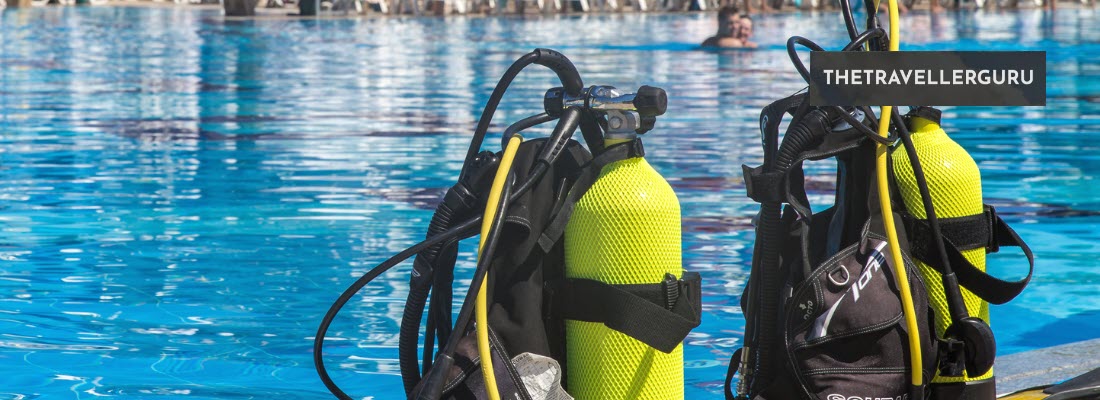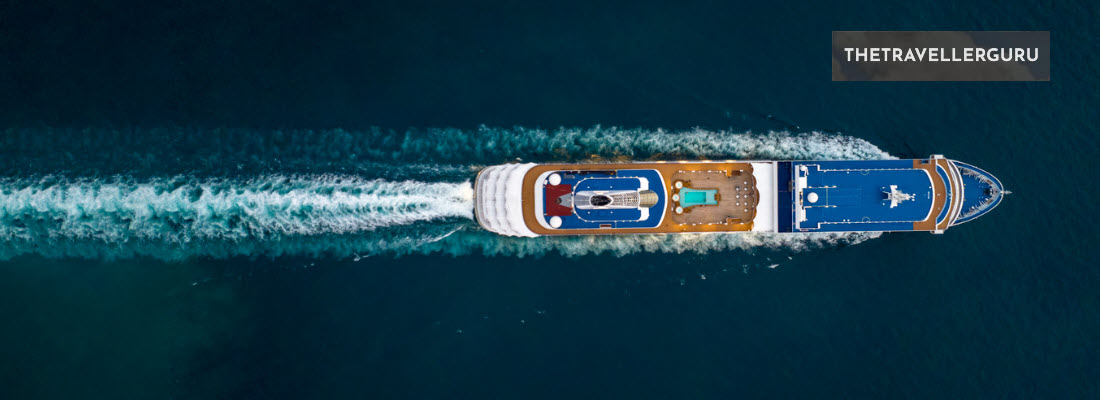Hey there fellow travelers and welcome to my post as we discuss how to find the best travel insurance to keep you protected this year. Traveling is one of the most exciting and enriching experiences a person can have, but it also comes with its fair share of risks. From medical emergencies to trip cancellations and lost luggage, a lot can go wrong while traveling.
That’s why it’s important to have travel insurance, which can help protect you and your finances in case of unexpected events. In this guide, we’ll provide a comprehensive overview of what travel insurance is, the different coverage types available, and how to choose the best policy for your needs.
How to Find the Best Travel Insurance
Ok, so let’s take a look at the steps required to find the best travel insurance for your needs.
1. Assessing your needs
As many of us start to think about our travel insurance, our main area of assessment is how much it costs. And we all know that there are plenty of options out there for cheap travel insurance. However cost aside, there are several other factors to consider as follows:
- Type of travel – Are you backpacking through Southeast Asia or taking a luxury cruise? This is probably an obvious statement but the type of trip you’re taking will impact the type of coverage you need. For example, if you’re going on a cruise, you may want to look for a policy that includes coverage for missed ports of call, while if you’re going on a ski trip, you may want coverage for injuries sustained while skiing or damage to ski gear etc.
- Destination – Your destination can also impact the type of coverage you need. For example, if you’re traveling to a remote location with limited access to medical care, you may want to look for a policy that includes medical evacuation coverage. Also, if you’re traveling internationally, you’ll want to make sure your policy includes coverage for emergency medical expenses (which in countries such as the United States can be exorbitant) and medical repatriation, in case you need to be transported back to your home country for medical care.
- Health and age – Your health and age are also important considerations. If you have pre-existing medical conditions, you’ll want to look for a policy that includes coverage for those conditions – DO NOT lie here as even though the policy will be more expensive, you may not be covered if you are away and it flairs up. If you’re over a certain age (usually 65), you may need to look for a policy with age-specific coverage as well.
- Activities: If you’re planning to participate in adventure activities like bungee jumping or scuba diving, make sure your policy includes coverage for those activities. Some policies may exclude coverage for certain activities or may require you to purchase additional coverage. This can include behaviors such as moped riding in places like Bali or donkey rides in South America for example.
- Length of trip: And lastly, the length of your trip can impact the type of coverage you need. If you’re taking a short trip, you may only need coverage for trip cancellation and emergency medical expenses. If you’re taking a longer trip, you may want coverage for lost or delayed baggage, trip interruption, and more.
The lucky thing here is that most companies ask the above questions by default as you look for a quote, however by considering these factors beforehand, you can ensure you choose a policy that provides the right amount of coverage and protects you from unexpected expenses and emergencies while traveling.

Check out my post: How to choose the best travel insurance for a cruise
2. Coverage Types
Based on the above, Travel insurance typically comes in several different coverage types including medical, trip cancellation/interruption and baggage loss/delay etc. These are outlined as follows:
- Medical coverage is arguably the most important, as it can help cover the cost of emergency medical care while traveling – which is why it is critical to make sure any pre-existing conditions are included.
- Trip cancellation/interruption coverage can reimburse you for non-refundable expenses in case you need to cancel or cut your trip short. This also covers things such as cancelled flights or tours etc. during your travels.
- Baggage loss/delay coverage can help reimburse you for lost or delayed luggage.
- Accident and injury will cover anything that arises from your vacation activities such as snow skiing, mountain climbing etc.
- Overseas Medical – this is different to the first option above and provides cover for the ever growing medical travel industry – you know, traveling for cosmetic surgery (A.K.A Medical Tourism) etc.
- Miscellaneous covers other incidentals and risks such as theft of your gear, rental vehicle excesses, loss of cash and/or travel documents and so on.
Check out these: Money Belts for Travel
3. Exclusions and Limitations
As it tends to be with all insurance, it is often more important to consider what it not included rather than what is. These exclusions (or fine print) are situations and circumstances that are not covered by the policy and can impact your ability to make a claim.
These can include:
- Pre-existing medical conditions: As we discussed above, whilst it is important to ensure that all pre-existing conditions are included within your initial quote request, you should also keep in mind that many travel insurance policies exclude coverage for some of these conditions as well.
- High-risk activities: Some policies may exclude coverage for high-risk activities such as skydiving, bungee jumping, or mountain climbing. Again, you can account for these before you travel but also keep this in mind should you suddenly find these an option on a whim once you have left.
- Travel to high-risk areas: Some policies may exclude coverage for travel to certain high-risk areas, such as war-torn or politically unstable countries. If you plan to travel to one of these areas, make sure your policy provides coverage for it. And always check travel advice from your relevant foreign affairs agency in your country too.
- Illegal activities: This probably goes without saying but if you engage in illegal activities while traveling, your travel insurance policy will not provide coverage for any related expenses.
- Alcohol and drug use: This is one that catches a lot of people out as it is not always something you may consider but if you become ill or injured due to alcohol or drug use, your travel insurance policy may not provide coverage for any related medical expenses. So keep this in mind before you jump onto that moped after a few beers.
- Failure to take reasonable precautions: If you fail to take reasonable precautions to protect yourself and your property while traveling, your travel insurance policy may not provide coverage for any related losses or damages. This can include small things such as not locking your luggage or swimming in an area where ‘no swimming’ signs have been installed etc.
It’s important to carefully review your travel insurance policy and understand any exclusions or limitations that may be included. If there are any exclusions that you’re concerned about, you may want to consider purchasing additional coverage or choosing a different policy that provides more comprehensive coverage for your needs.

4. Cost
Ok, now we come to the one thing that we all look at – how much this is going to cost you? Of course the cost of travel insurance can vary widely depending on the type and level of coverage you choose however it can also greatly vary from company to company.
For example, I personally have suffered from DVT in the past so my travel insurance always costs more based on pre-existing conditions. However I have seen variations of up to $700 from company to company for the exact same inclusions. Hence it is important to compare policies and find the best value for your needs.
Don’t just go for the cheapest policy as these tend to have many more exclusions. That said, make sure you’re getting adequate coverage for the type of travel you’re doing for the best price.
5. Claims process
And finally, the last thing to consider is how these companies manage their claims. Obviously (and hopefully) you will not have direct experience here however I strongly suggest you do your research and evaluate the reputation and customer service of the company you are purchasing from. Look for reviews and ratings from other travelers, and make sure the company has a good track record of handling claims.
And if you do find yourself needing to make a claim, it’s important to follow the process outlined by your insurance provider. This typically involves contacting them as soon as possible after the incident occurs, providing any necessary documentation to support your claim, and following up as needed to ensure your claim is processed in a timely manner.
Here are some additional tips for managing your policy and making a claim:
- Keep your policy documents and information easily accessible, either in print or digital form.
- Make sure to understand the process for making a claim, including any deadlines or requirements for submitting documentation.
- Contact your insurance provider as soon as possible if you need to make a claim, as some policies may have time limits for filing claims.
- Keep any relevant documentation to support your claim, such as medical records, police reports or receipts for expenses.
- Follow up with your insurance provider as needed to ensure your claim is processed in a timely manner.
It’s also important to remember that your travel insurance policy is there to help protect you in case of an emergency or unexpected event. While the claims process can be stressful, it’s important to stay calm and work with your insurance provider to get the assistance you need.

Conclusion
There you have it, my comprehensive guide for finding the best travel insurance. I would be pleased to know how this article helped you, and as usual, let me know of your experiences here.
Also, please do not hesitate to comment below if you have any questions, concerns, or corrections or would like me to check anything else out for you.
Until next time.
Have fun
Paul






